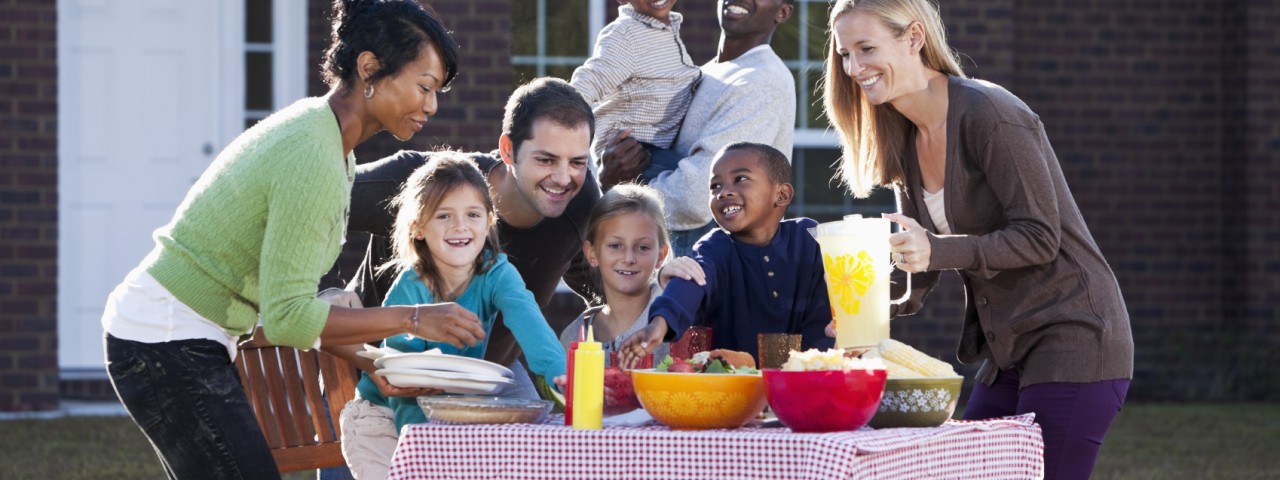Neighborhood Cohesion Supports Kindergarten Readiness
- Tweet

22 percent of children growing up in the United States live in families with incomes below the poverty line.1 In Memphis, that rate is even higher, with more than 42 percent of our children living in impoverished households.2 These children are more likely to enter kindergarten with developmental delays in terms of their social and cognitive readiness for school.3 In the longer term, these disadvantages in early childhood can cause kids to fall even further behind in later grades, with significant detrimental effects on their life outcomes.4
However, we know that poverty does not have to determine a child’s destiny. There are environmental and community protective factors that can benefit at-risk children as they enter kindergarten. Communities can be positive influences in children’s lives, and are particularly crucial to the wellbeing of families living in poverty. Having trusted and supportive neighbors who are good role models for children can be immensely helpful for struggling families. Trust, cohesion, and interdependence are part of a community’s social capital,5 and there is a growing body of evidence linking higher social capital to better outcomes for families.
Higher levels of social capital within a neighborhood are correlated with lower rates of violent crime and homicide.6 Additionally, families in neighborhoods with an abundance of social capital report better physical and mental health than those in neighborhoods with less social cohesion.7 Because safe neighborhoods and physical health can protect children from poverty-related stress than can impair their physical and emotional development, community traits can be a powerful influence on children’s kindergarten readiness.
But we also know that neighborhood social capital affects kindergarten readiness more directly. Children raised in neighborhoods with high social capital tend to reach kindergarten with fewer behavioral problems than their peers, and may even exhibit better critical thinking skills as they enter school.8,9 A new study from the Urban Child Institute has found that higher social capital enables Memphis families to promote their children’s early reading habits, which in turn improves their performance on early literacy measures.
Clearly, neighborhood cohesion, trust, and connectedness are beneficial to young families, and play crucial roles in children’s early social and cognitive development. Initiatives aimed at preparing young children for kindergarten must acknowledge the importance of the communities where children and their families reside.
References:- National Center for Children in Poverty. Child Poverty. Available here.
- Delavega, E. (2012). Memphis poverty fact sheet. Department of Social Work, School of Urban Affairs and Public Policy, University of Memphis. Available here.
- Isaacs, J.B. (2012). Starting school at a disadvantage: The school readiness of poor children. Washington, DC: The Brookings Institution.
- Braveman P, Sadegh-Nobari T and Egerter S (2008, June) Early childhood experiences: Laying the foundation for health across a lifetime (Issue Brief No. 1). Princeton, NJ: Robert Wood Johnson Foundation.
- Kawachi, I., Kennedy, B.P., Lochner, K., & Prothrowstith, D. (1997). Social capital, income inequality, and mortality. American Journal of Public Health, 87(9), 1491-1498.
- Kennedy, B.P., & Kawachi, I. (1998). Social capital, income inequality, and firearm violent crime. Social Science & Medicine, 47(1), 11.
- Poortinga, W. (2006). Social relations or social capital? Individual and community health effects of social capital. Social Science & Medicine, 63(1), 255-270.
- Drukker, M., Feron, F. M., Mengelers, R., & Van Os, J. (2009). Neighborhood Socioeconomic and Social Factors and School Achievement in Boys and Girls. Journal Of Early Adolescence, 29(2), 285-306.
- Runyan, D.K., Hunter, W.M., Socolar, R.S., Amaya-Jackson, L., English, D., Landsverk, J., Dubowitz, W., Browne, D.H., Bangdiwala, S., Mathew, R.M. (1998). Children who prosper in unfavorable environments: The relationship to social capital. Pediatrics, 101(1), 4.
